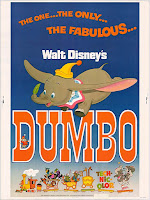Modern Times - Thematic Resonance
Quick Thoughts: Modern Times
A cog trying to escape the machine, Chaplin's Little Tramp, meets an orphan girl.
In a recent post on The Great Dictator (link here) we discussed political satire and ultimately its detrimental effect on a cinematic narrative. The argument made was that what makes The Great Dictator an undeniable classic, one of the great comedies, is despite of Chaplin's politics. The basis of the argument was on the difference between philsophy and politics and how the rift between them greatly effects the way we watch a film. With Modern Times, we are essentially seeing Chaplin's The Great Dictator re-contextualised (semantically, yes, The Great Dictator came later an so would be the re-contextualised film, but you get what I mean). In saying this I mean to suggest that all Chaplin says with The Great Dictator, with his last speech most evidently...

... is an echo of what he says in Modern Times.

Both films discuss inequality (to different extremes - Jewish persecution and social inequity) as well as the societal use of machinery. This is a common theme throughout many silent films in this era because of the huge technological revolution that was the beginning of the 20th century. Nonetheless, this thematic link between The Great Dictator and Modern Times speaks volumes of all discussed in opposition to political films within the previous post, moreover, the importance of cinema as a philosophical arena, not a political one. What I mean to suggest with this is the simple importance of themes - they are there to imply subtext, to speak of inequality and machinery in Chaplin's case. However, whilst Chaplin speaks of very similar things in Modern Times and The Great Dictator, one film is much more poignant than the other. Modern Times is most probably Chaplin's greatest film. Why? He shows respect to his audience by engaging in a philosophical discussion instead of a political monologue. This seems like a trivial argument from someone who just doesn't like politics, but there is immeasurable importance in the difference between cinematic entertainment with subtle context and political satire.
The simple difference is in the ending of these films. The Great Dictator ends with Chaplin quite literally screaming the meaning of the movie at us. For this, we walk away form the movie roused, but with a sense of completion - that the film is just a simple statement, a means to an end (in certain respects - the comedy brings us back, adding substance to the narrative). However, with Modern Times there's an optimistic ambiguity that solidifies the film as an undeniably great picture because it is more a movie than The Great Dictator, it engages in story, not commentary - something of such significance it needn't really be illustrated. All of this comes down to how Chaplin engages us in his message. In Modern Times, he uses themes to relate to us on an emotional level as well as an intellectual one, which, when received, the message of the film hits much harder. And so, in the end all of this speaks to the previous post, but also to the imperative of theme, subdued commentary and to filmmakers with big ideas; show them to us, make us feel them, try not to scream them at the camera.
A cog trying to escape the machine, Chaplin's Little Tramp, meets an orphan girl.
In a recent post on The Great Dictator (link here) we discussed political satire and ultimately its detrimental effect on a cinematic narrative. The argument made was that what makes The Great Dictator an undeniable classic, one of the great comedies, is despite of Chaplin's politics. The basis of the argument was on the difference between philsophy and politics and how the rift between them greatly effects the way we watch a film. With Modern Times, we are essentially seeing Chaplin's The Great Dictator re-contextualised (semantically, yes, The Great Dictator came later an so would be the re-contextualised film, but you get what I mean). In saying this I mean to suggest that all Chaplin says with The Great Dictator, with his last speech most evidently...


The simple difference is in the ending of these films. The Great Dictator ends with Chaplin quite literally screaming the meaning of the movie at us. For this, we walk away form the movie roused, but with a sense of completion - that the film is just a simple statement, a means to an end (in certain respects - the comedy brings us back, adding substance to the narrative). However, with Modern Times there's an optimistic ambiguity that solidifies the film as an undeniably great picture because it is more a movie than The Great Dictator, it engages in story, not commentary - something of such significance it needn't really be illustrated. All of this comes down to how Chaplin engages us in his message. In Modern Times, he uses themes to relate to us on an emotional level as well as an intellectual one, which, when received, the message of the film hits much harder. And so, in the end all of this speaks to the previous post, but also to the imperative of theme, subdued commentary and to filmmakers with big ideas; show them to us, make us feel them, try not to scream them at the camera.
Previous post:
More from:











